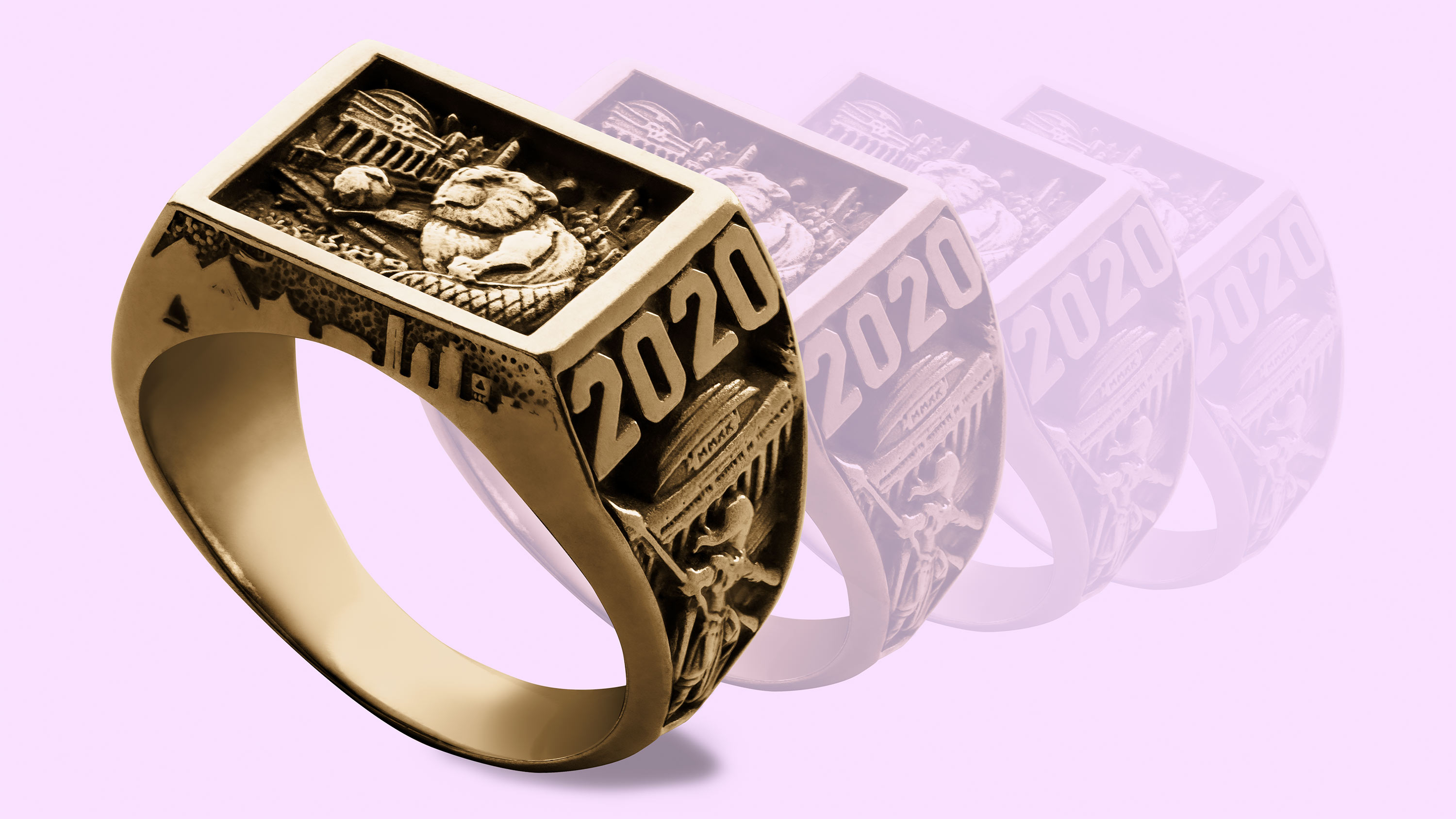
In 1929, a student committee assembled to design a standard MIT class ring. After debating whether to feature the Great Dome or the beaver on the bezel, they realized that many schools have a dome, but only MIT has such a clever and industrious mascot. The beaver won out and the brass rat was born. Every undergraduate class since has formed a “Ringcomm” to design and produce its own version of the iconic ring. Symbols in recent designs include the 2019 ring’s ripple in the river for LIGO’s discovery of gravitational waves and 2021’s depiction of the solar eclipse that occurred days after the class arrived at MIT.
The beaver is noted for his engineering, mechanical skills, and industry. His habits are nocturnal. He does his best work in the dark.
Hacker's Map
The most recent addition to the brass rat is the "Hacker's Map," a guide to the tunnels underneath campus that now appears on the inside of the ring. MIT.nano was added to the Hacker's Map for the Class of 2021's ring.
Cost of a medium 14K brass rat
$19.50
Class of 1930
$904.00
Class of 2021
Flipping at Graduation
Students wear their rings with the Boston skyline facing them; at graduation they flip the ring so the Cambridge skyline faces them, to represent their off-campus perspective as alumni.
Brass Rat Travels
The 2012 brass rat, which includes a model of the Apollo lunar lander on the Great Dome, traveled aboard the space shuttle Endeavor to the International Space Station in February 2010. Astronaut T.J. Creamer, SM '92, received it.
In 2016, Stephen Meyer '64 was reunited with his brass rat 50 years after losing it while washing a car on a visit to Alabama.
The brass rat has appeared on the silver screen multiple times. Wearers include Tony Stark in the Iron Man movies and Erin Gilbert, the ghost-busting paranormal investigator and Columbia physicist in 2016's Ghostbusters.
Keep Reading
Most Popular
Large language models can do jaw-dropping things. But nobody knows exactly why.
And that's a problem. Figuring it out is one of the biggest scientific puzzles of our time and a crucial step towards controlling more powerful future models.
How scientists traced a mysterious covid case back to six toilets
When wastewater surveillance turns into a hunt for a single infected individual, the ethics get tricky.
The problem with plug-in hybrids? Their drivers.
Plug-in hybrids are often sold as a transition to EVs, but new data from Europe shows we’re still underestimating the emissions they produce.
Stay connected
Get the latest updates from
MIT Technology Review
Discover special offers, top stories, upcoming events, and more.